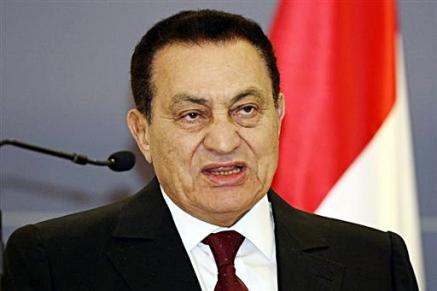
Both King Claudius (right) and rulers in the Middle East have a few things in common. One, they are both "above" and "superior" to the other people. There are class divisions and conflicts both within the castle in Hamlet between Claudius and his courtiers and soldiers, as well as between Hosni Mubarak and the citizens of Egypt.
Currently in the Middle East, there has been much unrest and uprising by the people against the government (below: former president of Egypt, Hosni Mubarak). These governments, some monarchies and royal families and others "elected" officials who have been in office for 20+ years, have faced criticisms of corruption and denying the lower classes some of their rights. Mubarak is not the only Middle Eastern leader who has been facing conflict, but also Gaddafi of Libya and Khalifa of Bahrain.


While there may not be as evident, full conflicts created by class division in Hamlet as there are in the Middle East, the class division is still very evident between the ruling family and the commoners or the people working in the castle.
Is it inevitable that the two classes, the royalty and the commoners, will always come into conflict? It seems as though in most books and plays they do, and it seems that in all countries the poor always want to revolt against the rich, the weak against the strong, the commoners against the royalty. Is there any way to avoid it? If it IS inevitable, leaders must learn how to
 deal with the uprisings and their position on conflict. In some of the Middle Eastern leaders' policies, their positions include firing on the protestors and releasing tear gas into the crowds. In the United States, our leaders have adopted the policy of letting the lower classes protest peacefully. (Right: Current King Khalifa of Bahrain)
deal with the uprisings and their position on conflict. In some of the Middle Eastern leaders' policies, their positions include firing on the protestors and releasing tear gas into the crowds. In the United States, our leaders have adopted the policy of letting the lower classes protest peacefully. (Right: Current King Khalifa of Bahrain)This picture below is a picture of a protest in which many Egyptians flooded one of main streets/squares. This picture shows you just how strongly the people were fighting against the government/royalty for basic rights like freedom of speech, free elections and release of political prisoners:

Hamlet has been praised for being a play that is relatable to people of all classes because of its portrayal of conflicts which are relevant to all societies. This conflict is particularly relevant today because of all the class conflict and uprisings happening in the Middle East, especially as shown in Egypt. Class conflict is inevitable for society and it is important to maintain a Marxist lens and critical approach as one reads a work of fiction to understand underlying motives and conflicts that exist between characters which are not always clear.



No comments:
Post a Comment